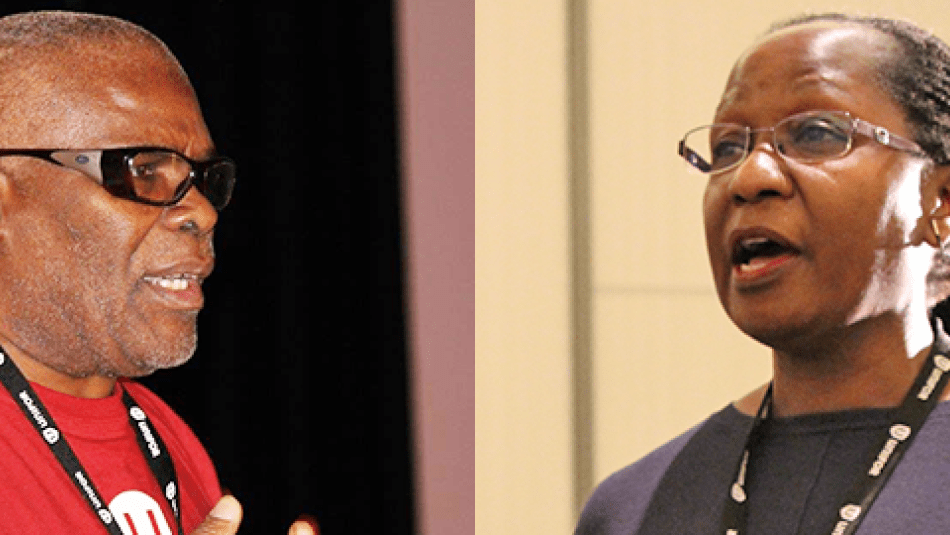
Share
Each week throughout Black History Month Unifor is sharing stories of members to recognize the contributions Black activists are making in their communities and in our union. This week read about two members from British Columbia, both who sit on the B.C. Aboriginal and Workers of Colour Standing Committee. Here’s what Hopeton Hague from Local 1997 (far left in picture) in Prince George, B.C. and Margaret Olal, Local 3000 (far right in picture) in New Westminster, B.C. had to say about the contributions of Black activists and how change is created through activism.
Hopeton Hague is a proud Unifor member with a passion for activism, but yet he does not readily admit that he is an activist. Since his days at university, Hague has been interested in political change through social movements and activism is just part of his identity. “There is always something in life that needs to be made better, some injustice that needs addressing. I’ve always liked being part of that process,” he admits.
Never one to toot his own horn, Hague shies away from praise that recognizes his individual contribution and insists on the role of collective action because, in this mind, anyone that is involved in a movement for attention or focus to themselves should rethink their involvement.
In Hague’s opinion Black Canadians need to be more visible and vocal as agents of change that are involved and active in the political process. In January of this year, Hague put his words into action and started the year off with activism in the streets. As an ally and participant he joined the union’s contingent in the Women’s March and noted it gave him a particular sense of pride to be present.
Along with his activism in the streets Hague has been active in contributing to electoral change in 2017. As part of Unifor’s member to member election campaign in B.C. Hague, along with Margaret Olal and others, worked to mobilize during the last B.C. provincial election. Unifor locals played a major role in the defeat of Christy Clarke and Hague indicated that this is one of his most memorable involvements in the past year.
For Margaret Olal, being active politically and socially has always been something that she has been enthusiastic about.
Olal considers herself an activist and reclaims that label, “I have always been the type of person that if there is something I’m concerned about, an issue that I believe needs to be spoken up about, I want to address it myself. I’m not going to leave the important stuff to someone else.”
Like Hague, Olal viewed the recent Woman’s March one of the most significant demonstrations she has attended. “It’s the most pressing cause of our day and it was important for me to be active in it, to show my daughters and granddaughters that when something is not right, we must stand up against it.”
As member of the Unifor Aboriginal and Workers of Colour Standing Committee in B.C, both Hague and Olal help to make a difference inside the union and in their community. Both are a source of inspiration, great energy and their work creates hope for the future. This week’s featured Unifor activists remind us of the role that Black Canadians have in activism and why more need to be more engaged civically.
Olal summed it best with an important message to all members of Unifor; “Political involvement is crucial. Change starts by making sure that your municipal, provincial and federal elected representatives know what you are concerned about and that you want to see them change it.”


